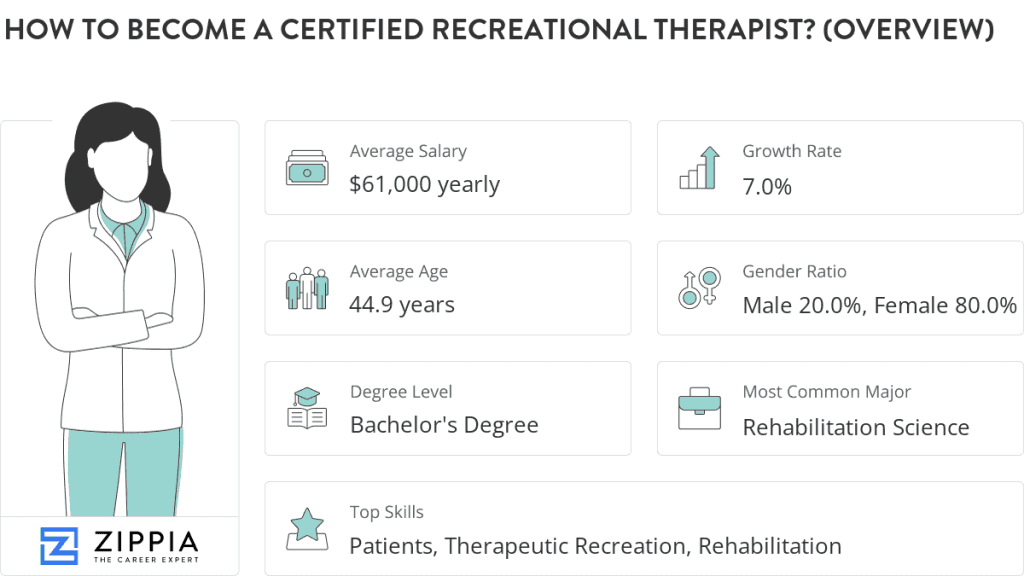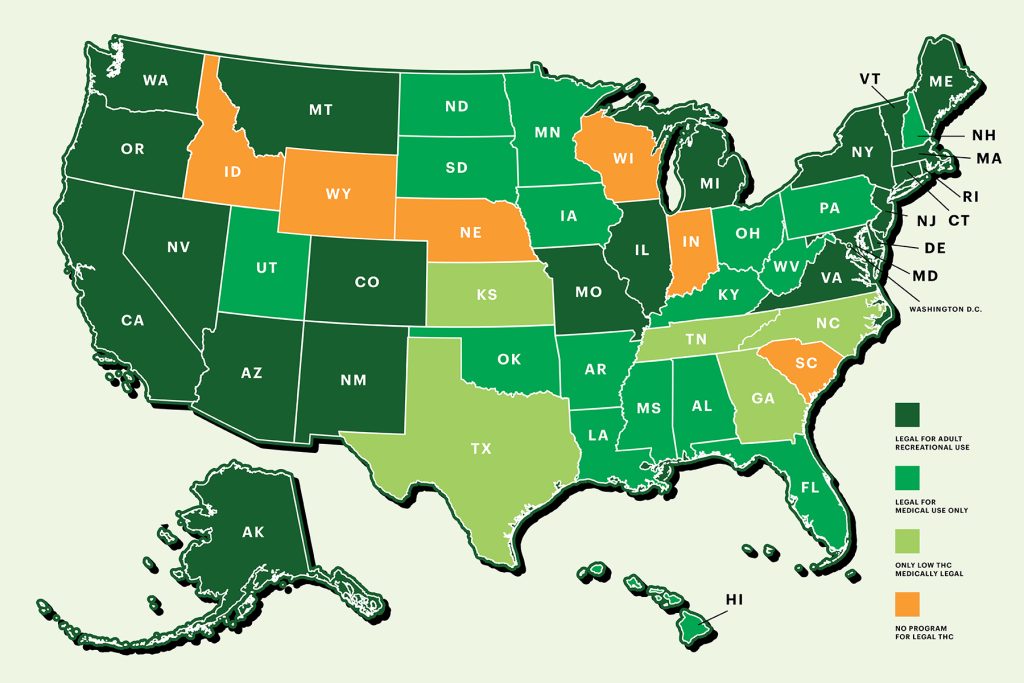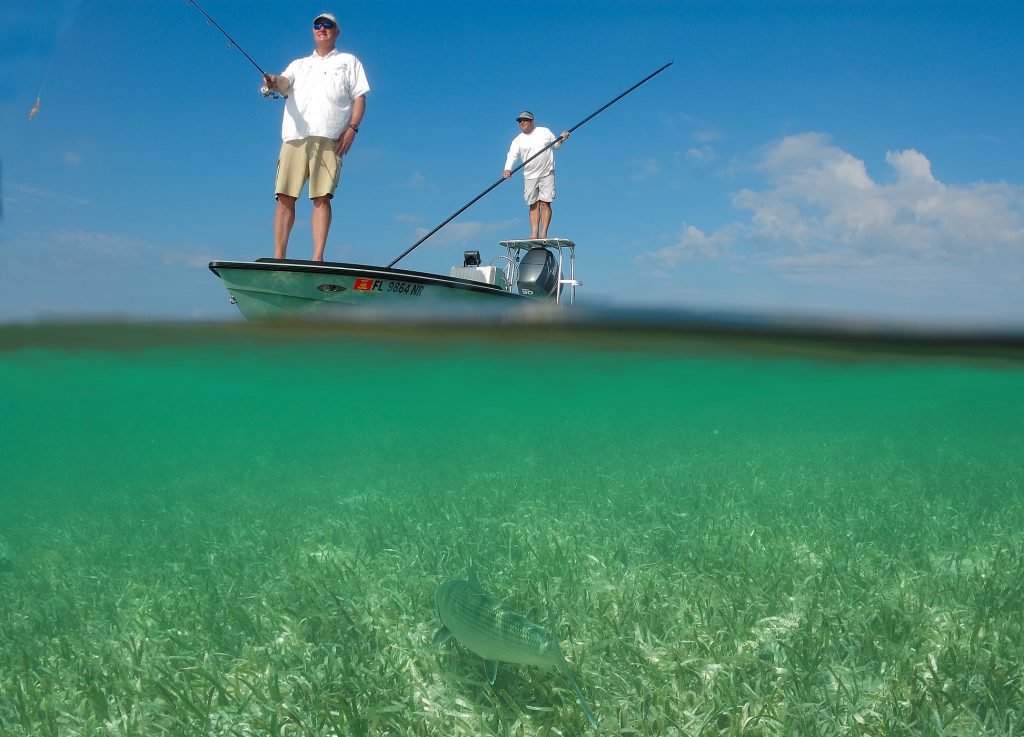So you’re curious about how long it takes to become a recreational therapist? Well, strap in and get ready for an exciting journey! Becoming a recreational therapist is a path filled with passion, dedication, and a whole lot of learning. But fear not, because I’m here to guide you through the ins and outs of this rewarding career.
Before we dive into the timeline, let’s first understand what a recreational therapist does. Picture this: you’re helping individuals improve their physical, mental, and emotional well-being through activities like sports, arts, and games. Sounds fun, right? Plus, you get to make a positive impact on people’s lives every single day. But how long does it take to reach this point of fulfillment? Well, it depends on a few factors.
First, let’s talk education. To become a recreational therapist, you’ll typically need a bachelor’s degree. This usually takes around four years to complete, but keep in mind that program lengths may vary. After obtaining your degree, you’ll need to gain some practical experience through internships or supervised work. This hands-on training is crucial for developing the skills and knowledge needed to thrive in the field. So, while the journey to becoming a recreational therapist may take some time, remember that every step along the way is an opportunity for growth and learning. And trust me, the end result is definitely worth the wait!

How Long Does It Take To Become a Recreational Therapist?
Recreational therapy is a rewarding career that involves helping individuals with disabilities or illnesses improve their physical, emotional, and social well-being through engaging recreational activities. If you’re considering a career in this field, you may be wondering how long it takes to become a recreational therapist. The path to becoming a recreational therapist typically involves completing a bachelor’s degree program, gaining practical experience through internships or supervised work, and obtaining certification.
1. Bachelor’s Degree in Recreational Therapy
To become a recreational therapist, the first step is to earn a bachelor’s degree in recreational therapy or a related field. These programs usually take four years to complete and provide students with a solid foundation in therapeutic recreation principles and practices. Coursework typically covers topics such as human anatomy and physiology, psychology, therapeutic interventions, and program planning. Students also learn about the specific needs of individuals with disabilities or illnesses and how to adapt recreational activities to meet those needs.
Importance of a Bachelor’s Degree
Obtaining a bachelor’s degree in recreational therapy is essential for several reasons. Firstly, it provides you with the necessary knowledge and skills to effectively assess and plan therapeutic interventions for individuals. Secondly, many employers require a bachelor’s degree as a minimum qualification for entry-level positions. Finally, a bachelor’s degree is often a prerequisite for pursuing certification as a recreational therapist.
Completing a bachelor’s degree program in recreational therapy typically takes four years of full-time study. However, the exact duration may vary depending on factors such as the program structure, course load, and any transfer credits you may have. Some students may choose to take longer to complete their degree by spreading out their coursework or pursuing part-time study options.
2. Practical Experience through Internships or Supervised Work
In addition to completing a bachelor’s degree, gaining practical experience through internships or supervised work is an essential part of becoming a recreational therapist. These experiences provide hands-on training and allow students to apply their knowledge in real-world settings. Many degree programs require students to complete a certain number of supervised hours in various recreational therapy settings, such as hospitals, rehabilitation centers, or community organizations.
Benefits of Practical Experience
Practical experience is invaluable for aspiring recreational therapists. It allows students to develop their skills, gain confidence in their abilities, and learn from experienced professionals in the field. Through internships or supervised work, students have the opportunity to work directly with individuals with disabilities or illnesses, plan and implement therapeutic activities, and assess the outcomes of their interventions. This practical experience helps bridge the gap between theory and practice and prepares students for their future careers as recreational therapists.
The duration of internships or supervised work experiences can vary depending on the program requirements. Some programs may require a specific number of hours, while others may have a set duration, such as a semester-long internship. It’s important to check with your program to understand the specific requirements and timeline for practical experience.
3. Certification as a Recreational Therapist
While certification is not always mandatory to practice as a recreational therapist, it is highly recommended and may be required by some employers. Certification demonstrates your competence and commitment to the field of recreational therapy and can enhance your job prospects. The National Council for Therapeutic Recreation Certification (NCTRC) offers the Certified Therapeutic Recreation Specialist (CTRS) credential, which is widely recognized in the field.
The Certification Process
To become a certified recreational therapist, you must meet certain eligibility requirements set by the NCTRC. These requirements typically include completing a bachelor’s degree in recreational therapy or a related field, completing a minimum number of supervised work hours, and passing the certification exam. The exam assesses your knowledge and skills in various areas of recreational therapy, such as assessment, treatment planning, and documentation.
The duration of the certification process can vary depending on individual circumstances. It may take several months to fulfill the eligibility requirements, including completing any additional supervised work hours if needed. Once you meet the requirements, you can schedule and take the certification exam. After passing the exam, you will be awarded the CTRS credential, which is valid for five years. To maintain your certification, you must fulfill continuing education requirements and renew your certification periodically.
In conclusion, the path to becoming a recreational therapist typically involves completing a bachelor’s degree program, gaining practical experience through internships or supervised work, and obtaining certification. The duration of this process can vary depending on individual circumstances, but it generally takes around four years to complete a bachelor’s degree and fulfill the necessary requirements for certification. It’s important to note that ongoing professional development is essential in this field to stay updated with the latest research and practices. A career as a recreational therapist offers the opportunity to make a positive impact on the lives of individuals with disabilities or illnesses, and the time invested in education and training is well worth it.
Key Takeaways: How Long Does It Take To Become a Recreational Therapist?
- Becoming a recreational therapist typically takes around 4 years of undergraduate study.
- After completing a bachelor’s degree, aspiring therapists may need to complete a 1-year internship or gain practical experience.
- Some states require recreational therapists to be licensed, which may involve passing an exam.
- Continuing education is important for recreational therapists to stay up-to-date with the latest research and techniques.
- Overall, it can take around 5-6 years of education and experience to become a fully qualified recreational therapist.
Frequently Asked Questions
What education is required to become a recreational therapist?
To become a recreational therapist, you will typically need a bachelor’s degree in recreational therapy or a related field. Many colleges and universities offer programs specifically designed for aspiring recreational therapists. These programs usually include coursework in subjects such as therapeutic recreation, psychology, anatomy, physiology, and human development. In addition to completing the required coursework, you may also need to complete a certain number of supervised clinical hours and pass a certification exam to become a certified recreational therapist.
While a bachelor’s degree is the minimum requirement for entry-level positions, some recreational therapists choose to pursue a master’s degree in recreational therapy or a related field to enhance their knowledge and skills in the field. A master’s degree may also be required for certain advanced positions or for those who wish to conduct research or teach at the collegiate level.
How long does it take to complete a bachelor’s degree in recreational therapy?
The time it takes to complete a bachelor’s degree in recreational therapy can vary depending on factors such as the program you choose, your course load, and whether you attend school on a full-time or part-time basis. On average, it takes about four years of full-time study to earn a bachelor’s degree. However, some programs offer accelerated options that allow students to complete their degree in a shorter amount of time. Part-time students may take longer to complete their degree, depending on their individual circumstances.
Keep in mind that this timeline is a general estimate and can vary from person to person. It’s always a good idea to consult with the specific college or university you plan to attend to get accurate information about their program duration and requirements.
Are there any additional certifications or licenses required to become a recreational therapist?
In addition to earning a bachelor’s degree in recreational therapy, many states require recreational therapists to obtain licensure or certification to practice. The specific requirements vary by state, so it’s important to research the regulations in the state where you plan to work. Some states may require the completion of a certain number of supervised clinical hours, passing a certification exam, or both. It’s also important to note that some employers may prefer or require certification even in states where it is not mandatory.
There are several organizations that offer certifications for recreational therapists, such as the National Council for Therapeutic Recreation Certification (NCTRC). These certifications typically require the completion of a bachelor’s degree, passing an exam, and meeting certain experience requirements. Obtaining certification can demonstrate your competence and commitment to the field and may enhance your job prospects.
Can I become a recreational therapist with a different bachelor’s degree?
While a bachelor’s degree in recreational therapy is the most common educational path to becoming a recreational therapist, it is possible to enter the field with a different bachelor’s degree. Some individuals may choose to pursue a bachelor’s degree in a related field, such as psychology or exercise science, and then gain additional experience or education in recreational therapy through certificate programs or graduate studies.
If you have a bachelor’s degree in a non-related field, you may be able to pursue a master’s degree in recreational therapy or a related field to gain the necessary knowledge and skills to work as a recreational therapist. Additionally, some states may have alternative pathways to licensure for individuals with non-traditional educational backgrounds. It’s important to research the specific requirements in your state and consult with educational institutions or professional organizations for guidance.
Is there a demand for recreational therapists?
Yes, there is a demand for recreational therapists. As the importance of holistic approaches to healthcare and the recognition of the benefits of recreational therapy continue to grow, the demand for qualified professionals in this field is expected to increase. Recreational therapists play a vital role in helping individuals with physical, emotional, or cognitive disabilities improve their overall well-being and quality of life.
According to the Bureau of Labor Statistics, employment of recreational therapists is projected to grow 8 percent from 2020 to 2030, which is faster than the average for all occupations. This growth is attributed to factors such as the aging population, increased awareness of the benefits of recreational therapy, and advancements in medical technology that allow individuals with disabilities to live longer and more fulfilling lives. This positive job outlook makes it an opportune time to pursue a career as a recreational therapist.

So You Want to Be a Recreational Therapist
Final Summary: How Long Does It Take To Become a Recreational Therapist?
So, you’re curious about how long it takes to become a recreational therapist? Well, my friend, I’ve got the answers you’re looking for. Becoming a recreational therapist requires a certain level of education and experience, but fear not, it’s definitely an achievable goal.
In conclusion, the path to becoming a recreational therapist typically involves obtaining a bachelor’s degree in recreational therapy or a related field. This usually takes around four years of dedicated study. However, some individuals may choose to pursue a master’s degree for further specialization, which can add an additional two years to their educational journey.
Furthermore, after completing your education, it’s important to gain practical experience through internships or supervised clinical work. This hands-on training allows you to apply your knowledge in real-world settings and develop the necessary skills to excel in your future career. The duration of these practical experiences can vary, but they are a crucial step in your journey to becoming a successful recreational therapist.
Remember, my friend, becoming a recreational therapist is a rewarding and fulfilling career choice. While the journey may take some time and dedication, the opportunities for personal growth and making a positive impact on others’ lives are well worth it. So, if you’re passionate about helping others and creating meaningful experiences through recreational activities, don’t hesitate to embark on this exciting path. Your future as a recreational therapist awaits!




